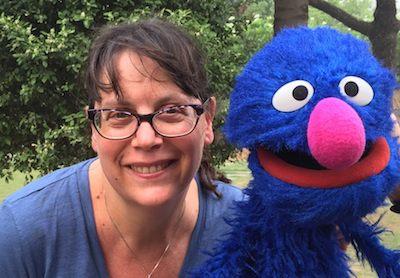
By Dina L.G. Borzekowski, Ed.D., Research Professor, Department of Behavioral and Community Health
With increased stress, as we are all experiencing right now, youth often shift to and exhibit characteristics of earlier developmental stages. It is of no surprise during this time of heightened anxiety that parents are witnessing tantrums and meltdowns among their elementary school aged children. There is no concealing the current disruptions; children between the ages of five to 10 years realize many things (i.e., school, sports, play-dates) are being withheld. Some may be overwhelmed by frustration and the sense of injustice COVID-19 is inflicting upon our communities. This pandemic threatens health, economics, employment, family, school, and childcare – and children know this.
When change is abrupt, involuntary, and negative, child development is adversely affected. The impact of instability is stronger for boys than girls, and worse for those of lower income groups. Interestingly though, long-term effects of instability are less so for children between first and fourth grades than for those who are younger. There are ways, though, to deal with uncertainty and change.
Children grow up in a world of concentric systems, with family being the closest circle. Positive interactions with caregivers, some who exist on different circles and now show up via electronic interactions, can actively engage with the child, buffering negative stressors. Social media, which our elementary-aged children are only too happy to use, can be of great help. Children can communicate through their parents’ Facebook and Instagram accounts, as long as a watchful eye is maintained. Allow your child to Facetime with older cousins, Zoom with coaches and teammates, and watch the many Youtube videos being especially created by educators, musicians, and children’s authors. (Mo Willems’ lunch doodles is particularly amazing, the Boston Children’s Museum provides a great virtual tour, and Billboard.com lists many upcoming online concerts).
Offering agency in this capricious time will improve children’s behaviors and affect their resiliency. Even young children need to know their voices will be heard and they have some control. Parents can provide children short-term agency by allowing them to pick the dinner menu, chapter book, or museum they’ll visit online. A recommendation is to offer the child a task where they are the ‘expert.’ Perhaps this will involve the nine year-old teaching her older relative how to download a cell phone application or the dance moves of a Tik Tok. Increased responsibility leads to greater self-worth, citizenship, and wellbeing.
We are experiencing an unprecedented time in America; however, feeling stress is normal and part of healthy development. During difficult times, parents should reach out to available support networks and encourage their children to take on more. Allowing interdependence and independence will only enhance children’s growth and development.
Related Links: